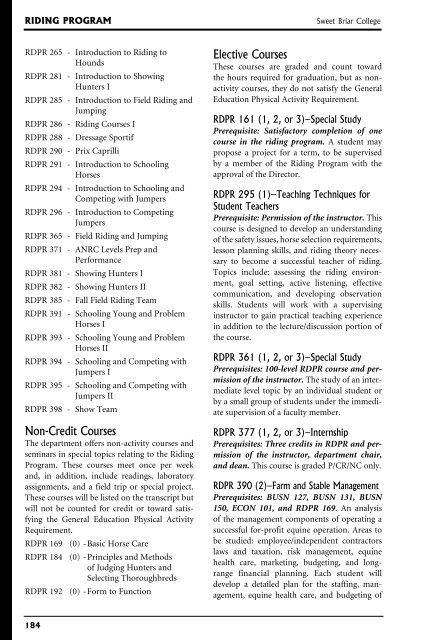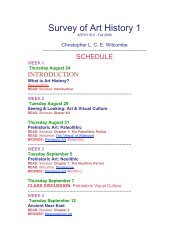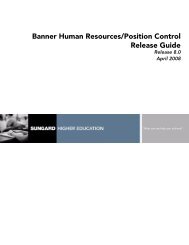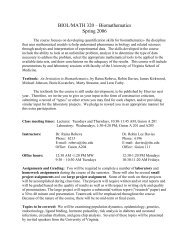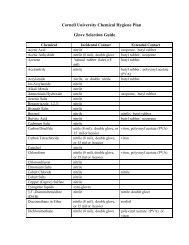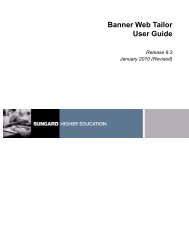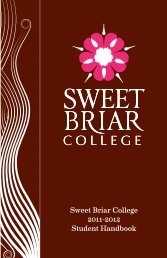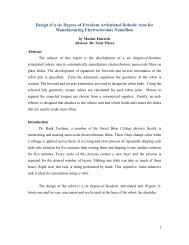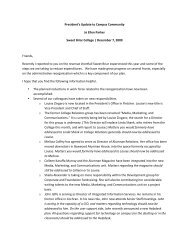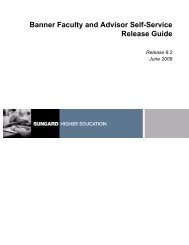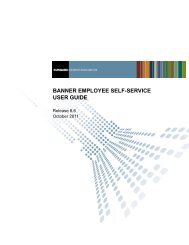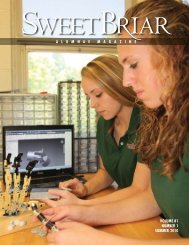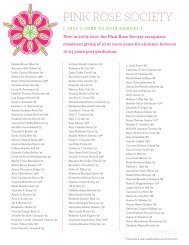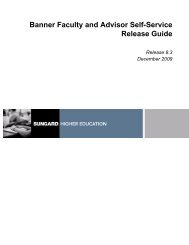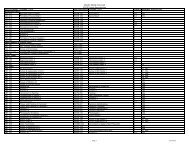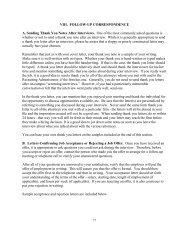2010-2011 - Sweet Briar College
2010-2011 - Sweet Briar College
2010-2011 - Sweet Briar College
- No tags were found...
You also want an ePaper? Increase the reach of your titles
YUMPU automatically turns print PDFs into web optimized ePapers that Google loves.
iding program<strong>Sweet</strong> <strong>Briar</strong> <strong>College</strong>RDPR 265 - Introduction to Riding toHoundsRDPR 281 - Introduction to ShowingHunters IRDPR 285 - Introduction to Field Riding andJumpingRDPR 286 - Riding Courses IRDPR 288 - Dressage SportifRDPR 290 - Prix CaprilliRDPR 291 - Introduction to SchoolingHorsesRDPR 294 - Introduction to Schooling andCompeting with JumpersRDPR 296 - Introduction to CompetingJumpersRDPR 365 - Field Riding and JumpingRDPR 371 - ANRC Levels Prep andPerformanceRDPR 381 - Showing Hunters IRDPR 382 - Showing Hunters IIRDPR 385 - Fall Field Riding TeamRDPR 391 - Schooling Young and ProblemHorses IRDPR 393 - Schooling Young and ProblemHorses IIRDPR 394 - Schooling and Competing withJumpers IRDPR 395 - Schooling and Competing withJumpers IIRDPR 398 - Show TeamNon-Credit CoursesThe department offers non-activity courses andseminars in special topics relating to the RidingProgram. These courses meet once per weekand, in addition, include readings, laboratoryassignments, and a field trip or special project.These courses will be listed on the transcript butwill not be counted for credit or toward satisfyingthe General Education Physical ActivityRequirement.RDPR 169 (0) -Basic Horse CareRDPR 184 (0) -Principles and Methodsof Judging Hunters andSelecting ThoroughbredsRDPR 192 (0) -Form to FunctionElective CoursesThese courses are graded and count towardthe hours required for graduation, but as nonactivitycourses, they do not satisfy the GeneralEducation Physical Activity Requirement.RDPR 161 (1, 2, or 3)–Special StudyPrerequisite: Satisfactory completion of onecourse in the riding program. A student maypropose a project for a term, to be supervisedby a member of the Riding Program with theapproval of the Director.RDPR 295 (1)–Teaching Techniques forStudent TeachersPrerequisite: Permission of the instructor. Thiscourse is designed to develop an understandingof the safety issues, horse selection requirements,lesson planning skills, and riding theory necessaryto become a successful teacher of riding.Topics include: assessing the riding environment,goal setting, active listening, effectivecommunication, and developing observationskills. Students will work with a supervisinginstructor to gain practical teaching experiencein addition to the lecture/discussion portion ofthe course.RDPR 361 (1, 2, or 3)–Special StudyPrerequisites: 100-level RDPR course and permissionof the instructor. The study of an intermediatelevel topic by an individual student orby a small group of students under the immediatesupervision of a faculty member.RDPR 377 (1, 2, or 3)–InternshipPrerequisites: Three credits in RDPR and permissionof the instructor, department chair,and dean. This course is graded P/CR/NC only.RDPR 390 (2)–Farm and Stable ManagementPrerequisites: BUSN 127, BUSN 131, BUSN150, ECON 101, and RDPR 169. An analysisof the management components of operating asuccessful for-profit equine operation. Areas tobe studied: employee/independent contractorslaws and taxation, risk management, equinehealth care, marketing, budgeting, and longrangefinancial planning. Each student willdevelop a detailed plan for the staffing, management,equine health care, and budgeting of184


